
Lobegott Friedrich Constantin (von) Tischendorf was a German biblical scholar. In 1844, he discovered the world's oldest and most complete Bible dated to around the mid-4th century and called Codex Sinaiticus after Saint Catherine's Monastery at Mount Sinai, where Tischendorf discovered it.
Johann Jakob Wettstein was a Swiss theologian, best known as a New Testament critic.

Richard John Bauckham is an English Anglican scholar in theology, historical theology and New Testament studies, specialising in New Testament Christology and the Gospel of John. He is a senior scholar at Ridley Hall, Cambridge.
The Jerusalem School of Synoptic Research is a consortium of Jewish and Christian scholars that study the Synoptic Gospels in light of the historic, linguistic and cultural milieu of Jesus. The beginnings of the collegial relationships that formed the Jerusalem School of Synoptic Research can be traced back to David Flusser and Robert L. Lindsey in the 1960s.

There have been many Coptic versions of the Bible, including some of the earliest translations into any language. Several different versions were made in the ancient world, with different editions of the Old and New Testament in five of the dialects of Coptic: Bohairic (northern), Fayyumic, Sahidic (southern), Akhmimic and Mesokemic (middle). Biblical books were translated from the Alexandrian Greek version.
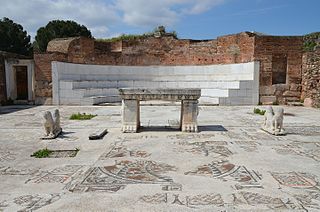
God-fearers or God-worshippers were a numerous class of Gentile sympathizers to Hellenistic Judaism that existed in the Greco-Roman world, which observed certain Jewish religious rites and traditions without becoming full converts to Judaism. The concept has precedents in the proselytes of the Hebrew Bible.
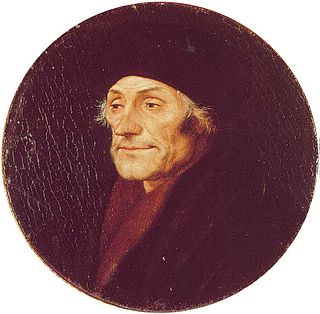
Novum Instrumentum omne was the first published New Testament in Greek (1516). It was prepared by Desiderius Erasmus (1466–1536) and printed by Johann Froben (1460–1527) of Basel. Although the first printed Greek New Testament was the Complutensian Polyglot (1514), it was the second to be published (1516). Erasmus used several Greek manuscripts housed in Basel, but some verses in Revelation he translated from the Latin Vulgate.

The phrase false god is a derogatory term used in Abrahamic religions to indicate cult images or deities of non-Abrahamic Pagan religions, as well as other competing entities or objects to which particular importance is attributed. Conversely, followers of animistic and polytheistic religions may regard the gods of various monotheistic religions as "false gods" because they do not believe that any real deity possesses the properties ascribed by monotheists to their sole deity. Atheists, who do not believe in any deities, do not usually use the term false god even though that would encompass all deities from the atheist viewpoint. Usage of this term is generally limited to theists, who choose to worship some deity or deities, but not others.
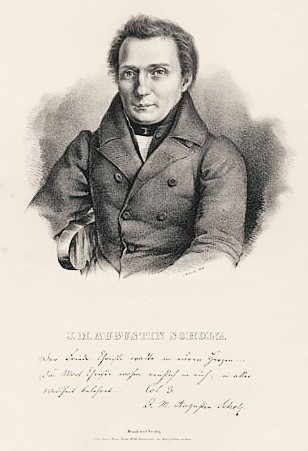
Johann Martin Augustin Scholz was a German Roman Catholic orientalist, biblical scholar and academic theologian. He was a professor at the University of Bonn and travelled extensively throughout Europe and the Near East in order to locate manuscripts of the New Testament.
Pieter Willem van der Horst is a scholar and university professor emeritus specializing in New Testament studies, Early Christian literature, and the Jewish and Hellenistic context of Early Christianity.
Jan Gabriël Van der Watt is one of the world's leading New Testament Scholars and a Bible translator who moved to the Netherlands from Pretoria, South Africa in 2009 to take up a chair in New Testament and Source texts of early Christianity at Radboud University in Nijmegen. For a quarter of a century previously, he was professor at the University of Pretoria, where he was named as one of the 100 most influential academic thinkers in the 100-year history of the University of Pretoria, South Africa. Van der Watt was also rated as international acknowledged researcher that is regarded by some of his international peers as international leader in his field,. Van der Watt is internationally best known for his monograph: Family of the King: Dynamics of Metaphor in the Gosepl According to John.

Allen Paul Wikgren was an American New Testament scholar and professor at the University of Chicago. His work centered on the text of the New Testament and New Testament manuscripts, but also included Hellenistic and biblical Greek, the deuterocanonical books (apocrypha), early Jewish literature, and work on the Revised Standard Version English translation of the Bible.
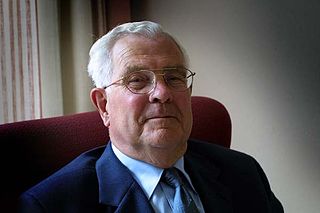
Albertus Frederik Johannes Klijn was a Dutch scholar of the New Testament and early Judaism and Christianity at the Rijksuniversiteit Groningen. He was best known for his introductory work on the New Testament, and then later for his publications on early Christian apocryphal literature.
David Edward Aune is an American New Testament scholar. He is the emeritus Walter Professor of New Testament and Christian Origins at the University of Notre Dame.
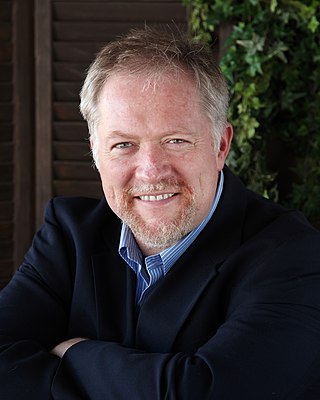
David Johannes Trobisch is a German scholar whose work has focused on formation of the Christian Bible, ancient New Testament manuscripts and the epistles of Paul.

The Acts of Thaddeus is a Greek document written between 544 and 944 CE which purports to describe correspondence between King Abgar V of Edessa and Jesus, which results in Jesus' disciple Thaddeus going to Edessa.
Jouette M. Bassler is an American biblical scholar and expert in Pauline theology who is Professor Emeritus of New Testament at Perkins School of Theology, Southern Methodist University. Her Ph.D. is from Yale University, and she taught at Georgetown University before moving to SMU. In 1979 Bassler was elected a member of the Catholic Biblical Association of America. She has written a number of books and served as general editor of the Journal of Biblical Literature from 1995 to 1999. She also served as New Testament editor for the HarperCollins Study Bible. Her 1994 article on the Pastoral Epistles has been "extremely influential in feminist interpretations." In 2007, a festschrift of nineteen essays was published in her honor.

Henk Jan de Jonge (1943-2022) was an author and professor emeritus of New Testament at Leiden University. He wrote on the history of early Christian traditions and specialized in the history of New Testament scholarship in the early modern period.
Cees Houtman, Cornelis Houtman is a Dutch emeritus professor of Old Testament at the Protestant Theological University in Kampen-1. He published on the Pentateuch, the interpretation of the Book of Exodus, the history of Dutch Bible translations and the Old Testament study in the Netherlands. After 2006 he focused on topics of book and church history, and the reception of the Bible in Dutch-language literature from the eighteenth century onwards.

The 4Q126 is an ancient Greek fragment and one of the Dead Sea Scrolls. Its text of this manuscript is unknown and it has not been possible to identify its text with any known LXX passage, a biblical verse or from some other literary work. Palaeographically it dates from the first century BCE or early first century CE.












